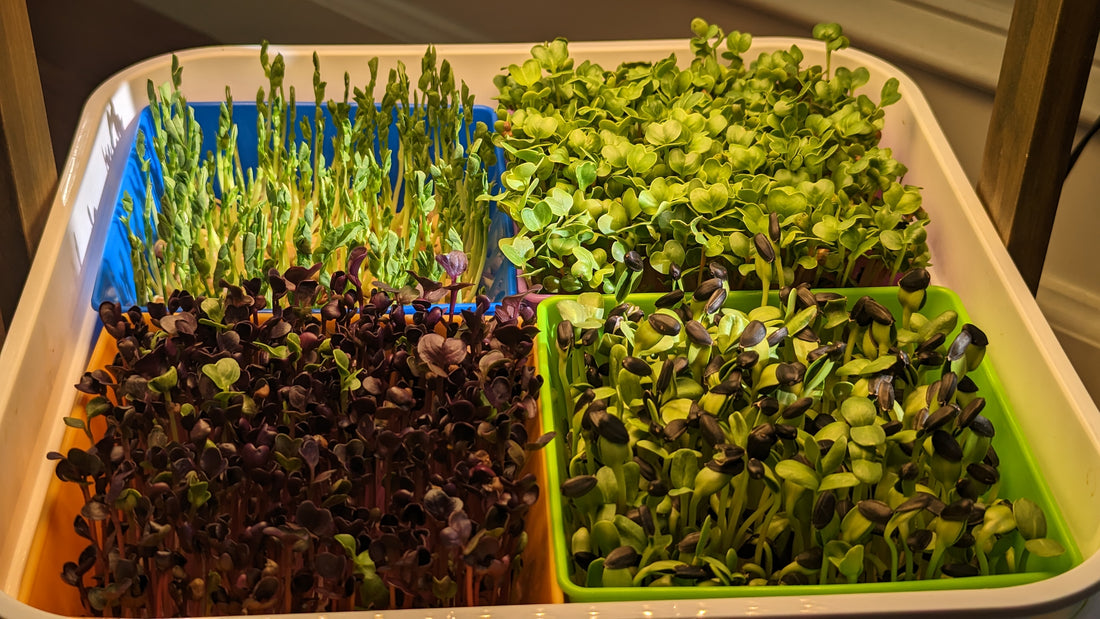There are many microgreens that are known to be particularly nutrient-dense, but the specific nutrient content can depend on growing conditions, such as the soil and lighting used. Some examples of microgreens that are commonly considered to be nutrient-dense include:
- Broccoli microgreens: Rich in vitamins C and K, as well as sulforaphane, a compound that has been linked to cancer prevention.
- Radish microgreens: High in vitamin C and also rich in vitamin E, calcium and potassium
- Mustard microgreens: High in vitamins A and C, as well as a good source of glucosinolates, which are known for their cancer-fighting properties.
- Arugula microgreens: Rich in vitamins K and A, as well as antioxidants
- Pea microgreens: High in vitamins A and C, as well as iron, zinc, and magnesium.

